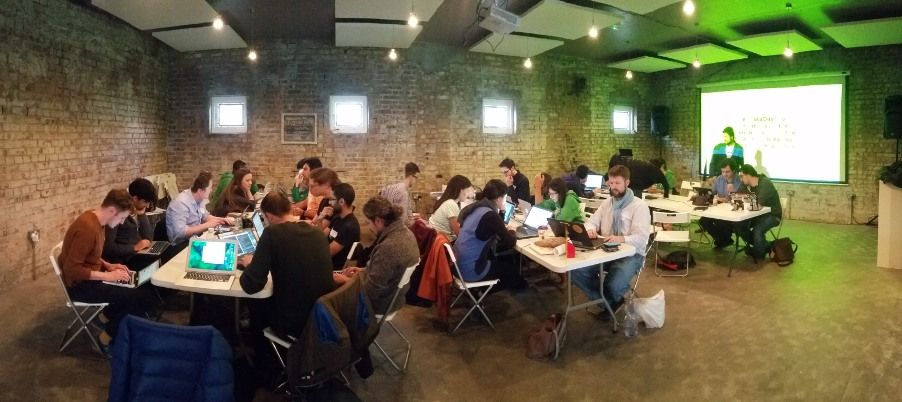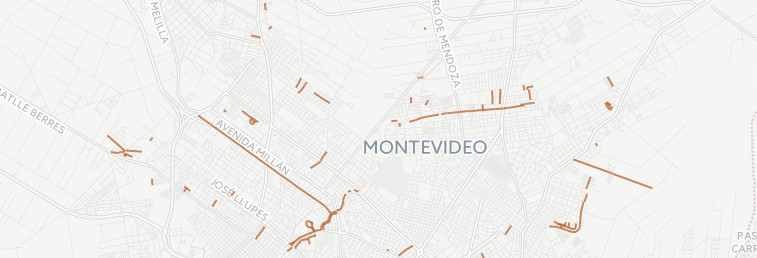Open Data Day 2016
The following blog post is written by Rob Davidson.
Open Data Day has been again! Hundreds of events with thousands of attendees happened over 6 continents – what a community of developers, hackers, data wranglers and designers there are out there: talk about the Digital Revolution! I was lucky enough to attend the London event and take part in an excellent project to do with the gender of London’s street names.
The project was all the more interesting because it was based on another project by hackers from Montevideo in Uruguay. They had collected their city’s street names from Open Data sources and then used a system called Genderize and a lot of manual curation to identify all the streets named after women. They’d then plotted this on a map on their project site, A-tu-nombre.
We decided to do the same thing for London. It was interesting to see how the same project was approached differently by us. Our assumption was that this was a project intended to highlight gender disparity and so we were concerned with plotting men Vs women on our map. However a big part of the focus in Uruguay had been to highlight the women and link to their Wikipedia page so people could learn more about them, learning about cultural history and a bit less adversarial.
Other differences became obvious in the challenge itself, for example, street naming in Montevideo often uses the full name of the person whereas in the UK we tend to use a surname or title and it’s much harder to automate the identification – this meant we didn’t bother with automated links to Wikipedia and just stuck with war of the sexes (see how that looked at the end).
This is user engagement
Getting stuck in at a hackathon was a great way to build relationships with developers and Open Data users that wouldn’t normally fall into our ‘User Experience’ surveys and seminars as well as to build relationships with obvious groups like Open Knowledge. I was impressed to be working alongside local council employees and after discovering they have lots of opinions on ONS Open Data I’ll be going to visit them to hear the experience of their whole team.
Another exciting hookup was with Data Campfire who are prototyping a platform that lets data users promote their projects and link to the publishers of the data they’ve used. It’ll be so much easier to learn from our wider data users if we can get a ping from that platform whenever someone posts a new use of our data.
Perhaps the best linkup was with the original team from Uruguay who were at their own Open Data Day event and happy to give us pointers and encouragement over the course of the event. Open Data is global and it’s great to have the opportunity to engage with potential users on another continent.
For anyone that’s thinking, ‘but I don’t have the skills to go to one of these things’, I can report that it was a hugely diverse group with bloggers, designers, journalists and activists alongside the obvious programmers and data geeks. You can definitely join in and contribute at an event like this.
See our project
Open Source goes hand in hand with Open Data so check out the gender assignment code over at GitHub. Or check out the CartoDB map of London’s streets with gender.
You might notice that although it’s ‘quite good’, it’s not perfect. Long Acre is considered female for example and we had to manually intervene to stop all the lanes being genderised because Lane is a legitimate name. However, there is a reason the Open mantra is ‘release early, release often’. Rather than sit on the project until the system is perfect – many, many months from now – we can post our code and share our ideas and hopefully inspire the community straight away, just as we were inspired by the team in Uruguay.
Update: Gregor Boyd over at the Data Donkey blog has copied/extended this project for Edinburgh’s streets using a different data source and a different mapping system – check out Edinburgh streets by gender too. If you repeat/extend this project for your neighbourhood, please do comment to let us know!



One comment on “Open Data Day 2016”
Comments are closed.